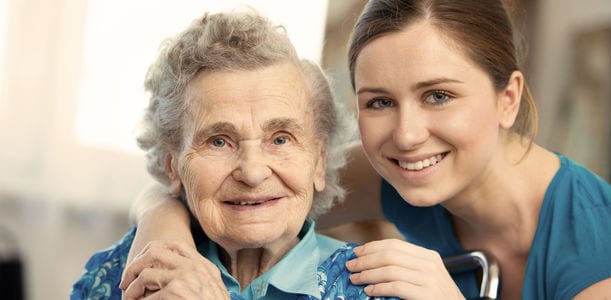
In order to improve longevity, prevent disease, and maintain their independence and overall physical health, it’s essential that senior citizens practice good personal hygiene.
Many seniors neglect steps like hand washing and bathing, not because they don’t prioritize health and cleanliness, but because they find them to be too difficult. They may lack the mobility necessary to climb in and out of the bathtub, or they may avoid bathing because they’re afraid of slipping and falling.
If you have an elderly parent or loved one who has been neglecting their personal hygiene, you might be feeling unsure of how to help them.
If you’re not able to hire an aide to assist with regular grooming procedures — or if they are not receptive to this idea — these five tips can help make personal hygiene easier and more accessible.
Poor Personal Hygiene as a Warning Sign
Before getting into the specific ways you can make personal hygiene easier for your parent or loved one, it’s important to note that poor hygiene can be a warning sign of a bigger issue.
If you have an elderly loved one who seems to have stopped taking care of themselves, they could be dealing with a condition like depression or the early stages of dementia.
If your loved is exhibiting other symptoms of these conditions — a detached attitude or a lack of interest in things they used to enjoy, in the case of depression, or forgetfulness and difficulty completing everyday tasks, in the case of dementia — encourage them to visit their doctor for additional help.
Making Personal Hygiene Easier
No matter what the root cause of your parent or loved one’s personal hygiene difficulties is, these six tips can help make the process significantly easier.
1. Suggest Simple Changes
Your parent or loved one may still be capable of keeping themselves neat and clean, but they may need to make some changes so that their lifestyle is a bit lower maintenance.
For example, they might have an easier time keeping their hair clean and combed if they cut it shorter. Or, maybe they need to shave or trim their beard with an electric razor that’s easier to maneuver.
2. Make the Bathroom a Safe Place
Many seniors are afraid of slipping and falling in the bathroom.
Whether they’ve had a bad past experience or are basing their fears on the experiences of others, it’s important to make sure they feel safe and confident. There are a few simple changes you can make to accomplish this:
- Install handrails near the toilet and shower
- Install raised toilet seats to make sitting and standing easier
- Use a bath step to make it easier for them to climb into the bathtub
- Install bright lights so that everything is more easily visible
3. Invest in Convenience Products
There are a number of products that seniors can utilize to stay clean and well-groomed on days when they’re too tired for a regular shower or bath.
No-rinse wipes are very convenient — there’s no water needed for rinsing or soaking, they just have to wipe themselves down.
No-rinse shampoo caps are also helpful — they clean the hair without water by absorbing oils and leaving behind a fresh, clean scent.
4. Simplify and Label Everything
Sometimes, seniors have a hard time navigating their way through the bathroom. This is especially common among seniors who are struggling with memory loss and/or dementia. They may grow so frustrated that they simply give up on their hygiene altogether.
To minimize frustration, start by clearing out the bathroom so that only the essentials are present. Get rid of unnecessary supplies and keep the bare minimum — shampoo, one razor, toothpaste, etc.
Once you’ve eliminated the excess, make sure everything has a clear label. You may even need to label the toilet and sink to prevent any potential confusion.
5. Give Them Choices
Finally, while it’s easy to come in, guns blazing, to try and make changes that will make your loved one’s life easier, remember that they need to have a choice in the matter.
The goal is to help them maintain their independence, and they can’t do that if you’re calling all the shots.
Have an open conversation with your loved one and ask them which changes they’re comfortable with. Be clear and honest about your concerns, but let them know that, at the end of the day, they’re the ones who get to make the final decisions.
Understandably, you may not have time to give your loved one suffering from dementia the time they need. It might be wise to look into dementia specialist aged care services, so that they can take the best care of your loved one and give you a bit more peace of mind.
Bonus – Sonic Soaker
Sonic Soak is the newest evolution in washing technology that utilizes ultrasonic technology to result in a deeper clean, saved time, water and energy, all in a compact package that can be taken anywhere.Sonic Soak generates modulated ultrasonic waves that travel through water to disintegrate dirt and bacteria at the microscopic level while being significantly more gentle than the conventional washing machine and even traditional hand washing.
